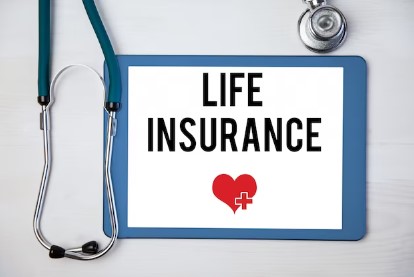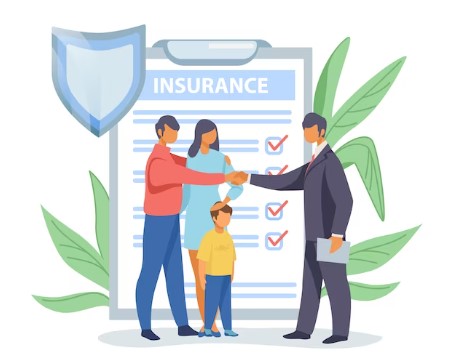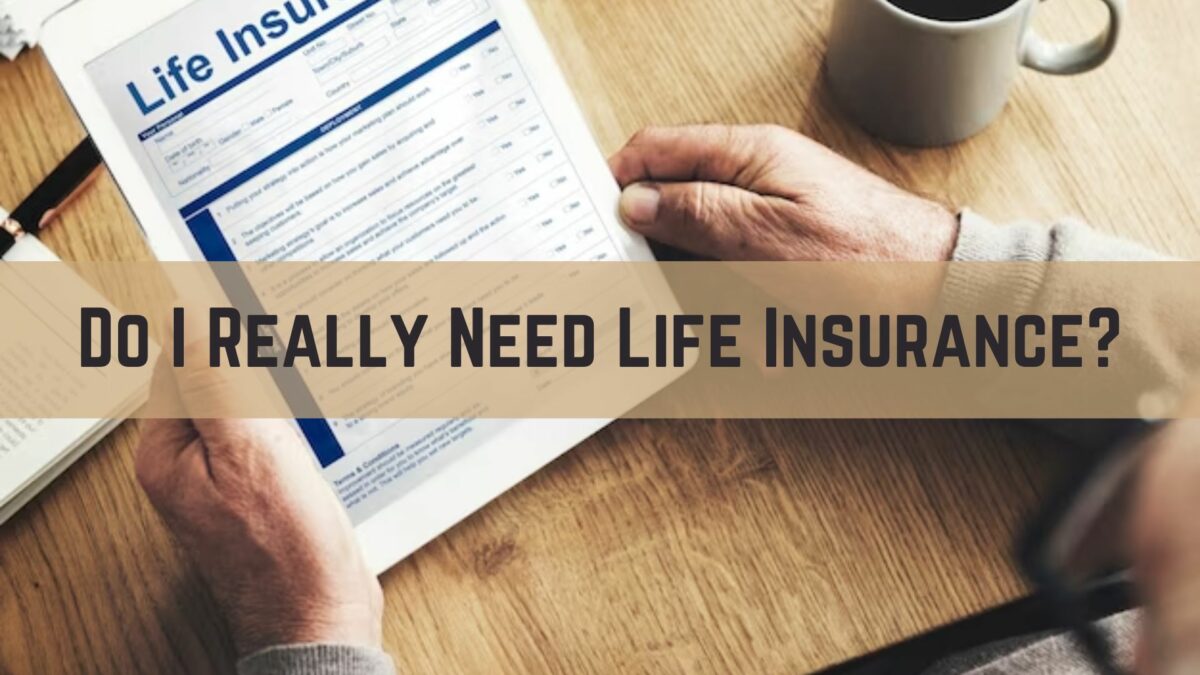Q : What’s the difference between an insurance company CEO and the mafia don?
A : The insurance company CEO can tell you how many people will die this year. The mafia don can tell you the names of all of them.
I recently had a tenant pass away, leaving his wife and three children. He had some life insurance, but it was pretty inadequate. Since they had a special needs child, the wife was a stay at home mom while he worked. Given the insufficiency of the insurance policy, she was faced with a choice to either go back to work or to downsize into a smaller and more inexpensive house, with either decision uprooting her family in a time of severe emotional stress.
As a result, I’ve seen the downside of what happens when you don’t carry enough insurance for your family.
In general, people purchase insurance for four reasons:
- To replace a departed parent’s income to cover raising the children until they can go out on their own.
- To replace a departed spouse’s income so that the remaining spouse can enjoy the same standard of living that the couple had.
- To care for a special needs dependent.
- Inter-generational wealth transfer.
Notice that none of those choices involve investing. Do not purchase insurance as an investment, no matter how many slick charts insurance salesmen show.
My tenants could have easily made a case for the first three, but they needed insurance for numbers one and three in any case. I’m sure they hadn’t actually developed a financial plan, so they thought that having the meager amount his employer offered was sufficient if something happened to him.
It was not.
But, still, most healthy thirtysomethings don’t just drop dead in the middle of the day.
Does life insurance cover a risk that needs to be covered?

I’m going to look at one of the cases for life insurance to evaluate its uses: replacing the income from a departed parent (or departed parents) to support the kids until they reach age 18 and can go out on their own.
I had to make some simplifying assumptions to keep from being overwhelmed by data. As it was, I ran over one million simulations to arrive at some answers!
First, I assumed that our hypothetical family had 2 kids. There was a three year gap between thef the first and second child, which is generally in line with the average of 2 years and 9 months between kids. Both parents worked and were the same age. They each earned $45,000 per year at age 25 – the median salary. They set aside the safe minimum amount for retirement, SAFEMIN. They invested 110 – age in the S&P 500, and the remainder in U.S. Treasury bonds. Their salaries increased by inflation, and so did their expenses. When the first child left the house, the spending decreased accordingly.
I then estimated whether or not Mom or Dad passed away before the kids had flown the nest. If a parent died, then, if they were insured, they received the amount of insurance they’d purchased. If they were not insured, then there were no proceeds. Expenses continued as they were, as we assumed that the remaining parent would need to pay for additional help that the previously living parent had covered.
I ran scenarios for parents who started having children between ages 25 and 45 to see how the death of a parent affected the finances of the family.
What are the chances that a parent will die?
We all like to think that we’re indestructible, but we’re not. Using the Social Security Administration’s actuarial life table, I calculated the probability that at least one parent (more likely the father) died before the second child left home. The probabilities range from 6.8% for 25 year old parents to 31.5% for 45 year old parents.
If you’ve been reading me for a while, then you know that I approve of plans when 90% of the simulations lead to positive outcomes. Just based on the actuarial statistics, parents who have kids before age 31 have a greater than 90% chance of being around when the second child leaves the house.
So, no insurance, right?
Well, the chances of my house burning down are pretty slim. I still carry a fire policy on my investment properties, even though I’m probably never going to make a claim.
Why is this so?
As we saw in “How Bad is Bad? The Magnitude of Failure in Retirement Planning Scenarios,” I’m comfortable going with a 90% success rate in my simulations because in that next percentage generally doesn’t mean falling off of a cliff; you can adjust your spending some and adapt to a set of poor circumstances without seriously endangering your finances.
But, if a parent dies, you lose that parent’s income. If both parents die, there’s no income, but there are still mouths to feed that someone else will have to support.
That’s a very bad outcome.
You could be temtped into thinking that families where the parents are older before they start having kids would have more time to save up so that they could, in effect, self-insure, balancing out the increased risk that one parent dies.
On average, you’d be right.
I ran 10,000 Monte Carlo simulations – meaning that I predicted 10,000 different futures with differing stock market returns, inflation, and whether or not a parent or both parents died – for each set of parents aged 25 through 45 to see what happened when the parents did not have insurance and at least one parent died.
What happens if you have no insurance?

For this analysis, I only evaluated cases where one or both parents died. I assumed that if the parents lived, all was well, and they lived happily ever after.
But, what if a parent dies?
As you can see, the median net worth for families turns positive once parents start families in their 30s. That means 50% of the families had more than the median amount and 50% had less than the median amount.
But, as I described above, I like for my simulations to have a 90% chance of success before I approve of a plan. If you, as a parent, want to make sure that you don’t leave your family destitute if you depart the earth before the second kid leaves the house, then you’re not happy with median outcomes. You’re interested in the 10th percentile – where only 10% of the people in the simulation are worse off.
This is a much hairier scenario. There are no ages at which 90% of cases have a positive net worth if one or both parents die.
The reason for this is that, in most of these cases (particularly as the parents get older), they were in debt to start with, and once a parent passed, the family could never recover.
Can you think of a situation where there might be some debt in the family?
Mortgage?
Student loans?
Car loan?
You get the point?
That’s one of the reasons that I’m pretty strident about knocking out your debt.
So, then, if you are starting a family and want to make sure they have enough money to suffice until the youngest leaves the house…
How much insurance does a family need?

Again, I ran 10,000 Monte Carlo simulations for our couples who were starting a family from ages 25 – 45. This time, I had them purchase insurance in multiples of their starting income, starting at 2 times income (which is what a lot of employer group life insurance policies offer) up to 20x income.
I only looked at situations where one or both parents died to see how much insurance was necessary so that 90% of the simulations had a positive net worth.
| Age | Insurance multiple at which 10th percentile turns positive |
| 25 | 14 |
| 26 | 14 |
| 27 | 16 |
| 28 | 16 |
| 29 | 16 |
| 30 | 18 |
| 31 | 18 |
| 32 | 18 |
| 33 | 18 |
| 34 | 18 |
| 35 | 20 |
| 36 | 20 |
| 37 | 20 |
| 38 | 20 |
| 39 | N/A |
| 40 | N/A |
| 41 | N/A |
| 42 | N/A |
| 43 | N/A |
| 44 | N/A |
| 45 | N/A |
That’s right. Starting at age 39, you’d need more than 20x income in insurance to have 90% of the simulations turn positive.
Why is that?
Again, we’re talking about situations where debt and poor market returns destroy net worth. Once debt or poor returns take over and start snowballing, it takes a LOT of work to stop the momentum.
But, if you’re not in a bad financial situation, do you need insurance, and how much do you need?
I believe that if you’re a parent, you do need insurance unless you truly do have enough accumulated wealth to not need the income of a deceased parent. Sure, you probably won’t use the insurance (touch wood), but in the cases where a parent dies, the death of the parent puts a tremendous financial and emotional burden on the family. As we saw, with no insurance, there are no cases where 90% of the simulations saw families end with positive net worth when the second child left the house.
How much you need is an entirely different question. There are more nuanced ways to approach the insurance question than the broad brush multiple of income rule of thumb that most planners and insurance agents use.
Sure, you will probably come up on the right side of the bet if you are a family who doesn’t have life insurance, but if you’re wrong, your family will face a tremendous loss. Is that a risk you want to take?
Author Profile
- John Davis is a nationally recognized expert on credit reporting, credit scoring, and identity theft. He has written four books about his expertise in the field and has been featured extensively in numerous media outlets such as The Wall Street Journal, The Washington Post, CNN, CBS News, CNBC, Fox Business, and many more. With over 20 years of experience helping consumers understand their credit and identity protection rights, John is passionate about empowering people to take control of their finances. He works with financial institutions to develop consumer-friendly policies that promote financial literacy and responsible borrowing habits.
Latest entries
 Low Income GrantsSeptember 25, 2023How to Get a Free Government Phone: A Step-by-Step Guide
Low Income GrantsSeptember 25, 2023How to Get a Free Government Phone: A Step-by-Step Guide Low Income GrantsSeptember 25, 2023Dental Charities That Help With Dental Costs
Low Income GrantsSeptember 25, 2023Dental Charities That Help With Dental Costs Low Income GrantsSeptember 25, 2023Low-Cost Hearing Aids for Seniors: A Comprehensive Guide
Low Income GrantsSeptember 25, 2023Low-Cost Hearing Aids for Seniors: A Comprehensive Guide Low Income GrantsSeptember 25, 2023Second Chance Apartments that Accept Evictions: A Comprehensive Guide
Low Income GrantsSeptember 25, 2023Second Chance Apartments that Accept Evictions: A Comprehensive Guide

